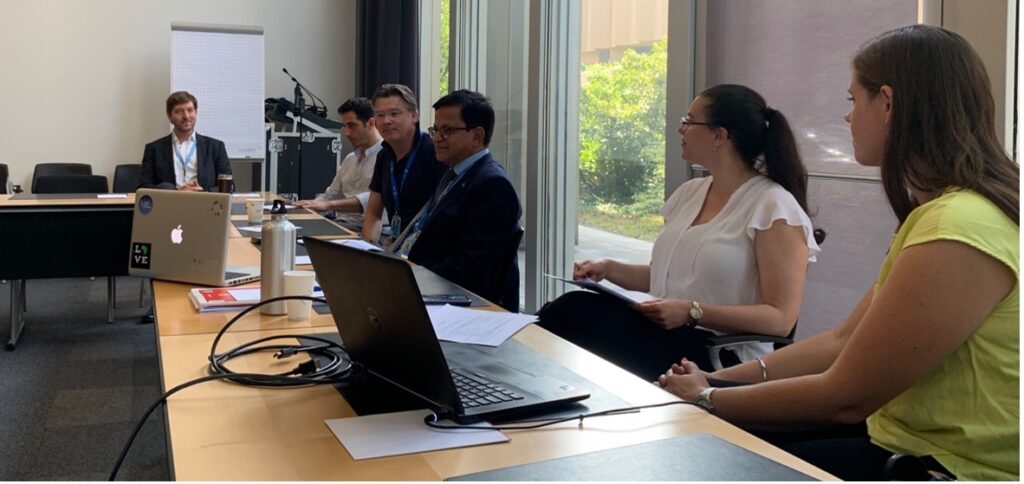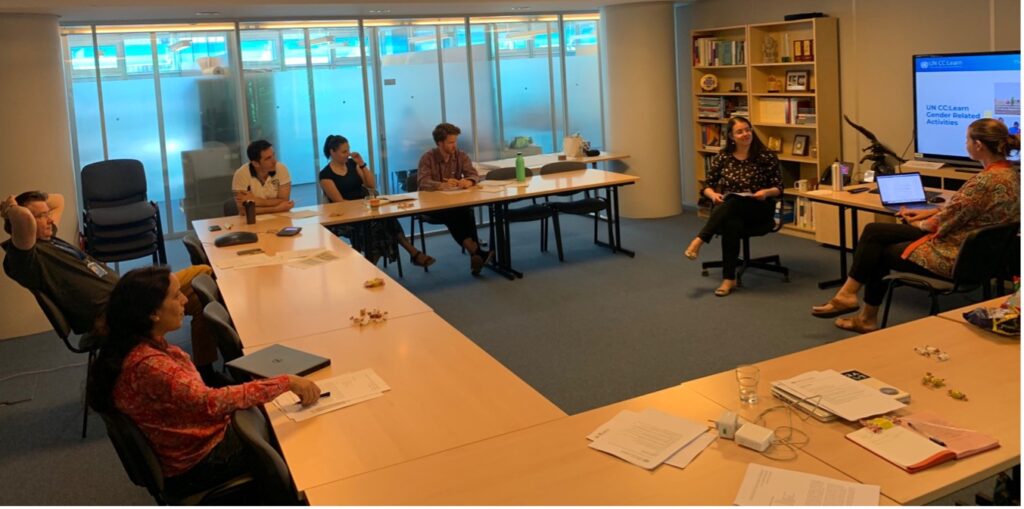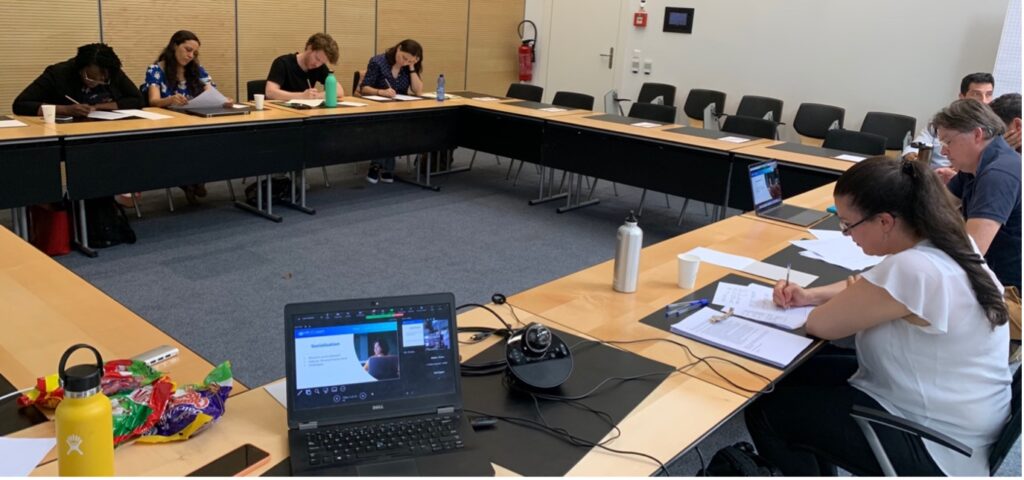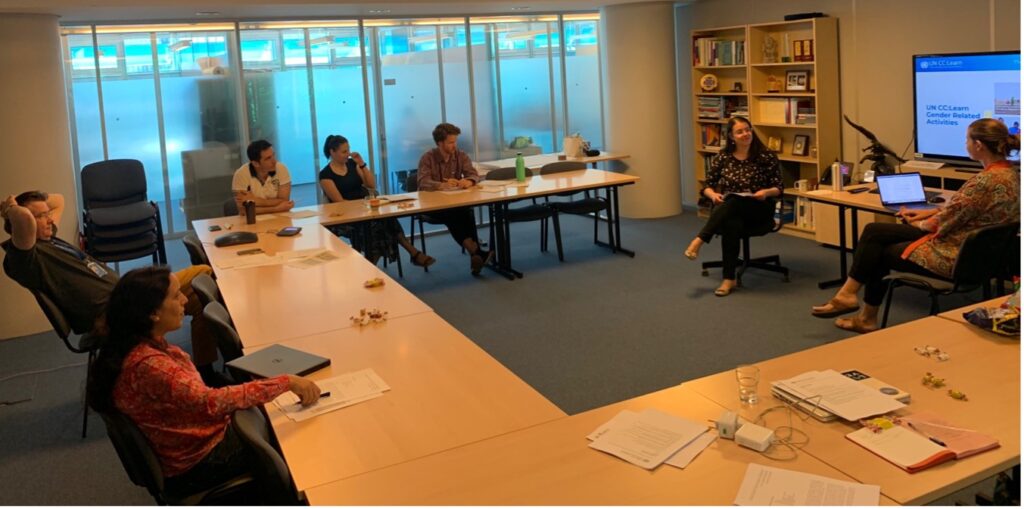UNITAR has made targeted efforts to mainstream gender equality and the empowerment of women and leaving no one behind, two of the guiding principles of the Sustainable Development Goals, at an institutional and programmatic level. From development of online courses (Gender and the Environment, Gender Equality and Human Rights in Climate Action and Renewable Energy) to institutional frameworks and guidelines on the integration of gender in projects. However, taking a deeper inward look, the Green Development and Climate Change Programme (GCP) team of UNITAR reflected on its own approach to gender mainstreaming and inclusion in its work.
Attitude and behavioural shifts start internally…
In an effort to strengthen internal capacity on inclusion, gender equality and women’s empowerment, a gender training was organized over the course of 5 days from 23 – 27 May 2022 in Geneva. The training was specifically tailored to speak to the context of gender equality and inclusion in GCP’s work on green development and climate change learning while also discussing the fundamentals of gender equality and inclusion (key terms, tools and approaches). The sessions utilised a varied approach with group work exercises, role plays, case studies, videos, mock interviews, practical sessions and check-ins.
UNITAR Executive Director, Mr. Nikhil Seth, highlighted the training as an essential initiative to elevate gender and inclusion within programmes and projects of GCP. It was also an opportune time as the training coincided with the beginning of the new phase of the UN CC:Learn programme and provided a chance to ensure interventions are indeed gender-responsive and contribute to the goal set out in the Theory of Change.

UNITAR Executive Director, Nikhil Seth (centre), opening the gender training
It is no longer enough to say gender equality and inclusion are important, we need to go beyond to practical action to reflect approaches that improve the condition and position of women and girls in all areas of our work. – UNITAR Executive Director, Nikhil Seth
Over the course of the week, the team dissected gender, intersectionality and a human rights-based approach drawing from personal and professional experiences, enriching the discussions and exercises. The approach to the training was highly practical and engaging, a safe space where colleagues could raise all sorts of questions, demystify misconceptions and assumptions around gender equality and inclusion and come up with creative and applicable ways to better address gender issues in a more proactive and systematic manner. Looking at GCP’s programme of work and partners, the aim was to identify opportunities and entry points to integrate and advocate for gender equality and inclusion. There were also dedicated one-on-one sessions where colleagues consulted with the gender expert on specific areas to integrate gender equality within their work; from gender-responsive communication, gender in green economy and e-learning and integration in youth engagement work.

GCP team in a mock interview exercise during the gender training
Aside from the technical content, the training also served as an informal team building session as it was the first time since the COVID-19 pandemic forced people to work from home, that the team had congregated and reacquainted in person.

GCP team filling out an exercise sheets during the gender training
With all that was learned throughout the week, there was a sense of invigoration among the team to ensure deliberate and conscious steps are taken to integrating gender equality and inclusion in all areas of work within climate change learning.

